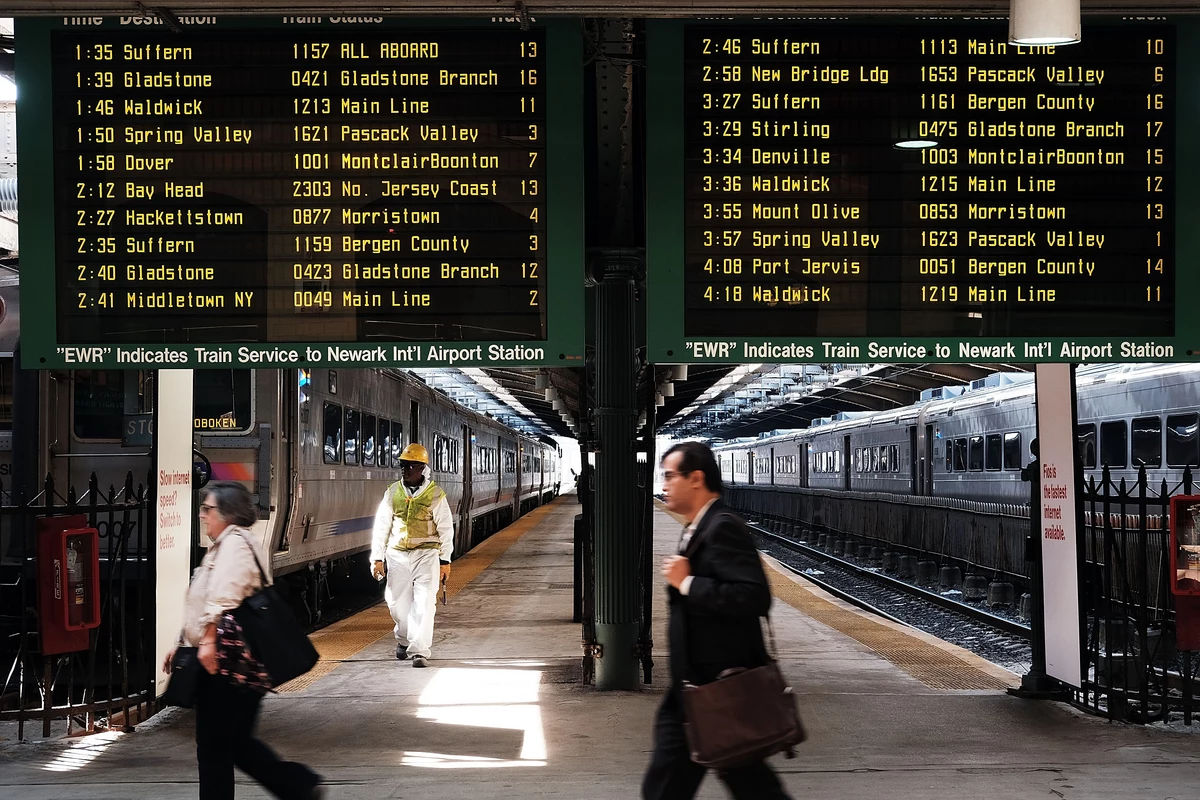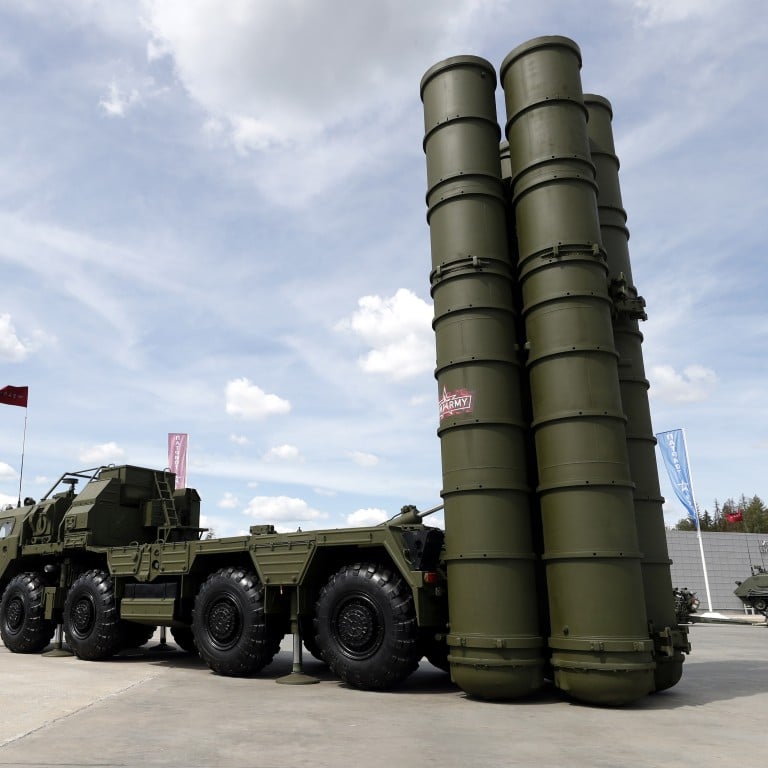NJ Transit Avoids Extended Service Disruptions After Union Deal

Table of Contents
Key Provisions of the NJ Transit Union Deal
The successful negotiation between NJ Transit and its unions resulted in a comprehensive labor agreement that addresses key concerns of transit workers, ultimately preventing significant NJ Transit service disruptions. The "NJ Transit union contract," as it's now known, includes several key provisions:
- Substantial Salary Increases: The contract delivers significant salary increases for transit workers, reflecting the demanding nature of their jobs and the rising cost of living. Specific details include a 10% increase over the next three years, with additional performance-based incentives.
- Improved Healthcare Benefits: The agreement includes enhancements to healthcare plans, ensuring affordable and comprehensive coverage for union members and their families. This includes reduced premiums and a wider range of covered services.
- Enhanced Working Conditions: The contract also addresses improvements in working conditions, including better safety protocols, increased staffing levels in certain areas, and provisions for improved work-life balance. This addresses long-standing concerns about worker fatigue and safety.
These elements of the "NJ Transit union contract" demonstrate a commitment to fair compensation and improved working conditions for transit workers – a crucial step in avoiding future NJ Transit service disruptions stemming from labor disputes. This successful "collective bargaining" showcases a productive approach to "transit worker negotiations."
Impact on NJ Transit Commuters
The successful avoidance of a strike has had an overwhelmingly positive impact on NJ Transit commuters. Millions of daily riders are benefiting from the continued reliable service, avoiding the significant inconvenience of widespread delays and cancellations. The positive consequences include:
- Uninterrupted Commutes: Commuters can rely on their regular schedules, eliminating the stress and uncertainty associated with potential "train delays" and "bus cancellations."
- Reliable Transit Service: The agreement guarantees the continuation of essential "public transportation," ensuring people can get to work, school, and appointments without major disruptions.
- Reduced Travel Times: Without the delays and overcrowding often associated with service disruptions, commuters are enjoying significantly reduced travel times, adding valuable time back into their days.
The averted "NJ Transit service disruptions" have significantly enhanced the overall quality of life for countless New Jersey residents who rely on NJ Transit for their daily commute. This positive impact underscores the importance of productive "transit worker negotiations."
Long-Term Implications for NJ Transit
The successful conclusion of the "NJ Transit union contract" holds significant long-term implications for both NJ Transit and its employees. The agreement sets the stage for:
- Improved Labor Relations: The collaborative approach during these negotiations fosters a more positive relationship between management and labor, creating a foundation for future constructive dialogue.
- Increased Employee Morale: Fair compensation and improved working conditions contribute to a boost in employee morale, translating into improved service quality and reduced employee turnover. This is crucial for maintaining a skilled workforce.
- Enhanced Service Reliability: A more harmonious and motivated workforce is directly linked to enhanced operational efficiency and increased service reliability, improving the overall performance of "NJ Transit." This translates to a more attractive and competitive public transportation system.
This agreement paves the way for a more stable and sustainable future for NJ Transit, contributing to better "NJ Transit future" prospects. Investing in its employees is crucial for attracting and retaining skilled workers, leading to better "service improvement." This, in turn, enhances the agency's public image and supports the overall goal of "sustainable transit."
Comparison to Previous NJ Transit Labor Disputes
This successful negotiation marks a significant departure from past "NJ Transit strikes" and "past labor disputes." Unlike previous instances that resulted in lengthy work stoppages and significant economic losses, this agreement demonstrates a commitment to resolving differences through dialogue and compromise.
- Avoidance of Extended Strikes: The agreement prevented a potentially crippling strike, minimizing economic disruption and avoiding the significant inconvenience to commuters.
- Reduced Economic Losses: The successful negotiation avoided the substantial economic losses associated with prolonged service interruptions. The cost savings to both NJ Transit and the state of New Jersey are significant.
The peaceful resolution of this "transit worker negotiations" process provides a blueprint for handling future labor relations, minimizing future "NJ Transit service disruptions" and promoting a more stable environment. It highlights the importance of proactive and collaborative approaches to "avoiding transit disruptions."
Conclusion: Securing Reliable NJ Transit Service for the Future
The successful union negotiations have averted major NJ Transit service disruptions, delivering a positive outcome for commuters and ensuring the agency's long-term stability. The agreement's provisions, including substantial salary increases, enhanced benefits, and improved working conditions, contribute to improved employee morale and enhanced service reliability. This proactive approach to "NJ Transit service disruptions" demonstrates the importance of fair labor practices in ensuring a reliable and efficient public transportation system.
To stay informed about future developments, including service improvements and labor relations, we encourage you to stay updated on NJ Transit news and learn more about NJ Transit service improvements. Follow NJ Transit for updates on their official website and social media channels to remain informed about any changes and developments affecting the commuter experience. By understanding and actively monitoring changes, riders can be confident and prepared for a future with reliable and efficient NJ Transit services.

Featured Posts
-
 Jennifer Lawrence Antrasis Kudikis Seimos Laime
May 20, 2025
Jennifer Lawrence Antrasis Kudikis Seimos Laime
May 20, 2025 -
 Segerstart Foer Jacob Friis Malta Besegrat
May 20, 2025
Segerstart Foer Jacob Friis Malta Besegrat
May 20, 2025 -
 Jennifer Lawrences Backless Gown First Public Appearance Since Second Childs Birth
May 20, 2025
Jennifer Lawrences Backless Gown First Public Appearance Since Second Childs Birth
May 20, 2025 -
 Philippines Resolve No Surrender On Missile System Despite Chinese Pressure
May 20, 2025
Philippines Resolve No Surrender On Missile System Despite Chinese Pressure
May 20, 2025 -
 Ryanair Tariff War Biggest Obstacle To Growth Stock Buyback Planned
May 20, 2025
Ryanair Tariff War Biggest Obstacle To Growth Stock Buyback Planned
May 20, 2025
